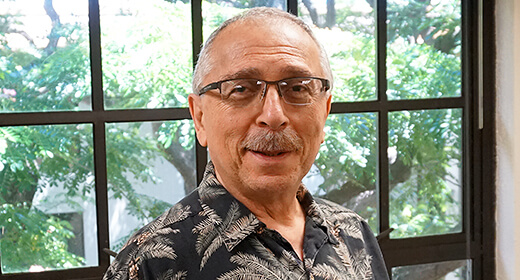
Ibrahim G. Aoude
Professor Emeritus
Email: aoude@hawaii.edu
Website
Background
I saw the integral relationship between Ethnic Studies and the social struggles of Hawaiʻi's people. That led to a life-long commitment to Hawaiʻi through my work in the Department. My teaching philosophy revolves around the student: the courses I teach are interactive and the classroom is a safe space for learning. The student cultivates critical thinking and recognizes the connections between the course materials and public policy that impacts the community of which the student is a part. Ethnic Studies is open on the wider world and recognizes the significance of studying other experiences. That recognition led me to teach about the Middle East and its impacts worldwide.
Education
- PhD, Political Science, University of Hawaiʻi at Mānoa, 1980
- MBA, California State University, Los Angeles, 1976
- BA, Business Administration, University of Hawaiʻi at Mānoa, 1974
Research
My research focuses on two areas: Hawaiʻi and the Pacific; and the Middle East. My ongoing research about Hawaiʻi and the frequent research I trips take to the Middle East significantly benefit the student. I edit Arab Studies Quarterly, an international academic journal, which contributed to the international academic recognition of the College of the Social Sciences and Ethnic Studies for the past 13 years. My research interests focus on: (1) the impact of globalization on Hawaiʻi and the indigenous Hawaiians; and (2) the role of the Middle East in global politics and how the region impacts the US, including Hawaiʻi.
Community Engagement
I pay close attention to Housing and homelessness and their relationship to public policy. I produce and host a TV show, Island Connections, once a month on the Education Channel to spread awareness about current social problems. On TV I discuss national and global issues that impact Hawaiʻi and the US. My defense of civil liberties and the importance of Hawaii's multiethnic diversity and the centrality of the indigenous Hawaiians in this diversity are significant in spreading awareness about those topics.